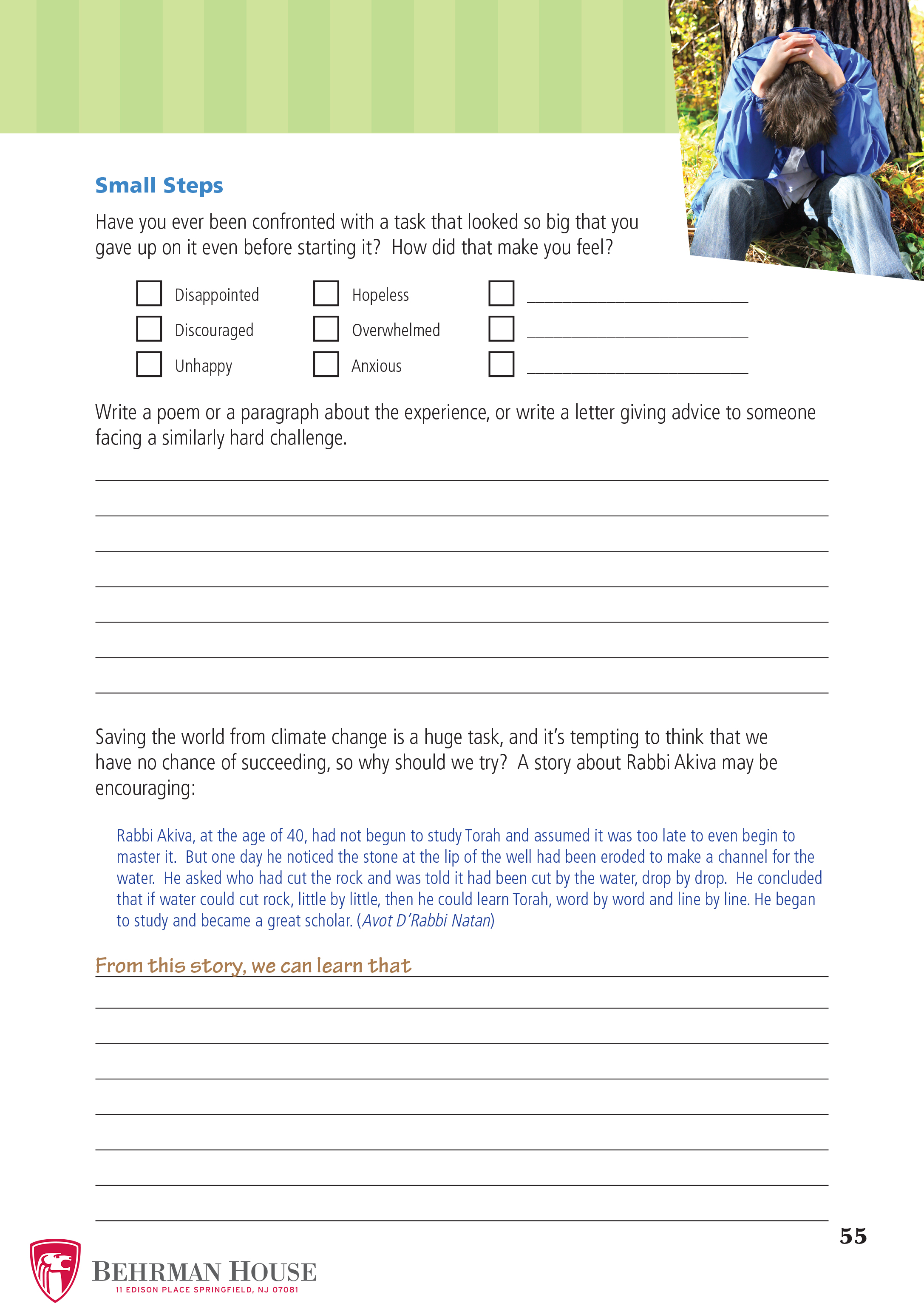Instant Lessons to Help Students Find Meaning in Nature This Tu BiShevat
Tu BiShevat pushes us to think about our natural world. We have an opportunity to celebrate trees, which are essential to our quality of life, and their role in our world. It begins the evening of Sunday, Feb. 5.
The holiday offers an entryway to helping students explore the Jewish values of Bal Tashchit (“do not destroy”), bettering the environment and creating a greener, more abundant world for themselves and for others.
Here are some ways ready-to-go lessons for Tu BiShevat and make best use of your limited time and attention spans to create rich learning.
Grade K-2
Explore and Find Meaning
Young students can get in touch with nature and learn about taking care of the planet. They’ll enjoy activities like charades, tasting fruit for a mindfulness moment, a tree treasure hunt, and more!
This material comes from Let's Discover the Spring Holidays.
Learn the Value of Caring for God's Beautiful World
Learn the mitzvah of taking care of the earth.
This material comes from Let's Discover Mitzvot.
Grade 3-6
Useful or Wasteful?
Discuss the concept of Bal Taschit, avoiding waste, as a guideline for taking care of natural resources.
Most of us, at some point, are wasteful. We buy more things than we need, and sometimes as let food go bad before we get a chance to eat it. Help students consider whether destruction is always wasteful. In small groups, discuss the following cases and whether is was useful or wasteful. Have groups share their ideas.
• You strongly dislike the new shirt you got as a gift. You put it away and store it in the attic.
• You have soccer cleats that are in decent shape but they no longer fit, so you put them in the recycling bin.
• You accidentally crack a dish but you decide to use the pieces to make a mosaic.
• An abandoned building is knocked down to build a shelter for homeless people.
• A section of wetlands is drained to build new shops and homes.
This exercise comes from Make, Create, Celebrate: Jewish Holiday Through Art.
Grade 6 and up
Reflection
Give students the opportunity to contemplate their own relationships with the natural world from a Jewish perspective through the powerful tool of of a reflective journal. For example, help students explore the question of how we can affect global issues when they seem too overwhelming. Begin with the story of Rabbi Akiva, who noticed stone that had been cut back by water, one drop at a time, and realized that big change happens only when we take small incremental steps.
Click the image to download a student activity page. (This comes from Our Place in the Universe - for grades 6-8 - in a chapter called "Large Tasks, Small Steps.")
Click here for a sample lesson plan about "Large Tasks, Small Steps,"


